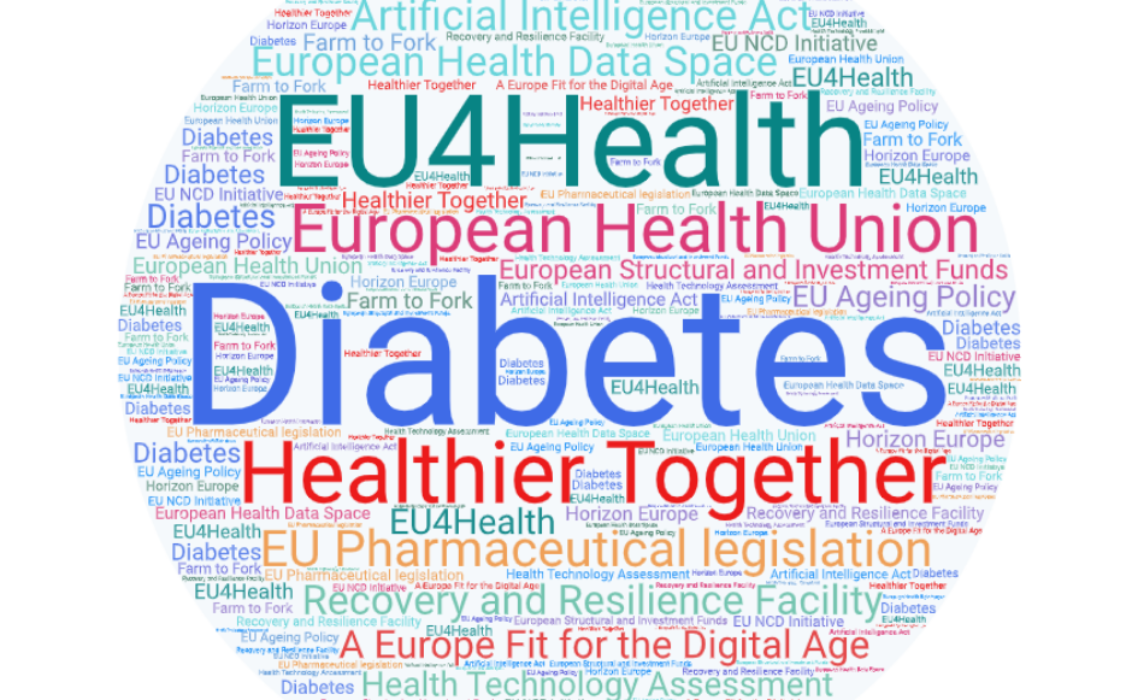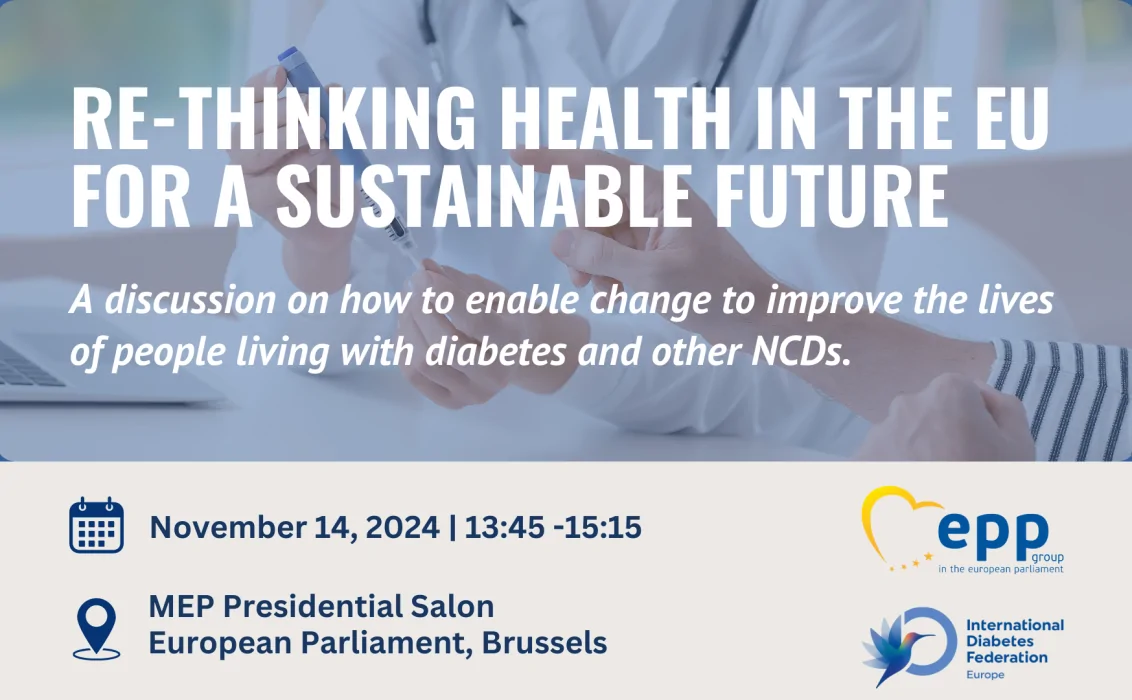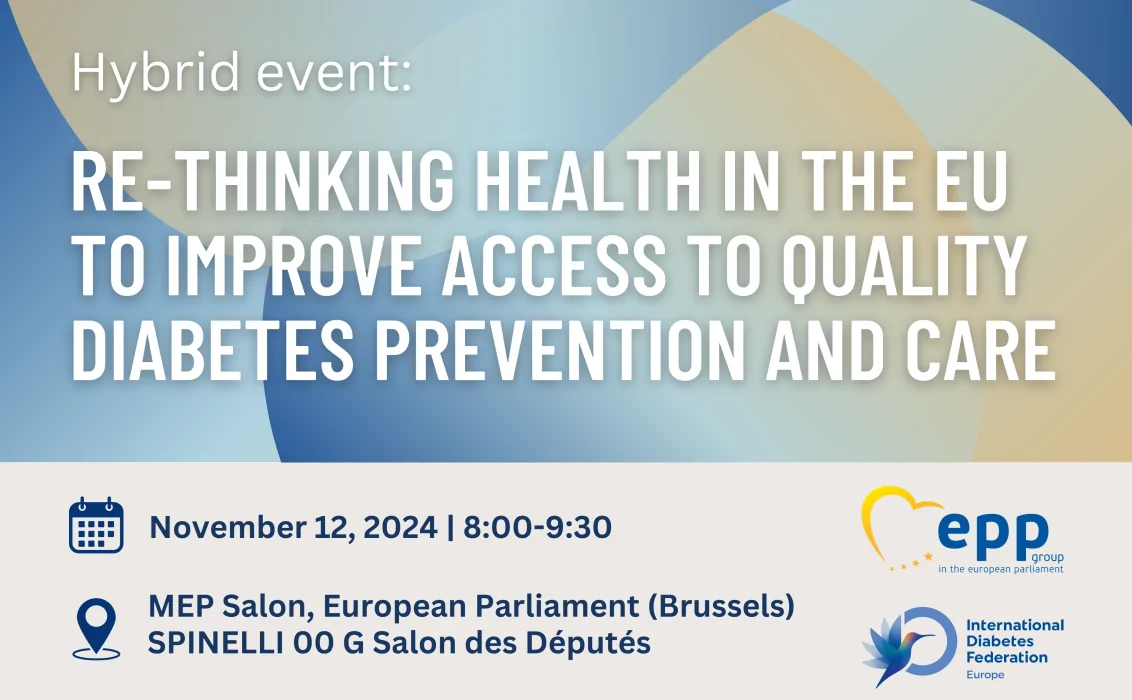On February 14, 2022, IDF Europe held a consultation with its Member Associations (MAs) in the EU, Norway and Iceland on Healthier Together: EU Non-communicable Diseases Initiative. Through this Initiative the European Commission aims to support European Union countries in reducing the burden of non-communicable diseases (NCDs), focusing on five key areas: diabetes, cardiovascular diseases, chronic respiratory diseases, mental health and neurological disorders, and health determinants.
Concrete actions may include the implementation of comprehensive public health policies, the transfer of best practices, the development of guidelines, the roll out of innovative approaches, and/or the launch of projects expected to have significant public health impact. Support will, in all cases, focus on implementation. The Commission will produce a final document to be shared with Member States (MS) and other stakeholders by June 2022. This document will summarise best practices, best buys, research results, innovative ideas (especially on prevention and health promotion) shared by stakeholders. It will also include a list of available legal and financial tools to support the implementation of the Initiative. MS and stakeholders are invited to submit proposals for best practices via the EU Best Practice Portal by 15 May 2022 (midnight CET).
The Healthier Together Initiative represents a unique opportunity for the diabetes community, but one that needs to be seized upon now. Funding will first be allocated to diabetes, cardiovascular diseases and health determinants in 2022, with additional focus on chronic respiratory diseases and mental health and neurological disorders as of 2023. It is crucial for MAs to act on the initiative now!
The initiative is based on a three-way collaboration between the European Commission, the Steering Group on Health Promotion, Disease Prevention and Management of NCDs (SGPP) representing national EU governments and pan-European diabetes stakeholders. For all to benefit from a strong coordinated push and to ensure EU funding is made available for diabetes, it is key to provide a critical mass of input, leveraging all opportunities at the national (national diabetes associations working in collaboration with their governments to provide input to the Commission) and pan-European level (pan-European stakeholders providing input to the Commission for subsequent discussion and presentation to national governments). This will ensure that the priorities of the diabetes community and a comprehensive list of potential actions, interventions, approaches and solutions are clearly identified by all stakeholders with the potential to be replicated and/or scaled up by MS. This is important as the European Commission will then propose these solutions to national governments for selection, implementation and funding in the Toolkit document which the European Commission will release later in 2022.



